After a decade of arguably unsuppressed devaluation of them, Liverpool are showing signs of increased interest in the domestic cups this season.
There is something a bit different about Liverpool’s approach to the League Cup this season, with added potential for it to overlap in the FA Cup too.
Ten years have almost passed since Liverpool last lifted a domestic cup, a success that came within a campaign in which they reached both domestic cup finals.
It was also a season that ended with FSG sacking Kenny Dalglish as manager, a price paid partly for undeniable Premier League inconsistencies, yet also the fall out of the Luis Suarez racist row, and him not fitting the owner’s identikit vision of the bright young coach they had had in mind when swiftly showing Roy Hodgson to the door.
While a multifaceted departure, when Dalglish was dispensed with it couldn’t help but feel like his domestic cup endeavours had stood for nothing as part of the equation.
The line in the sand
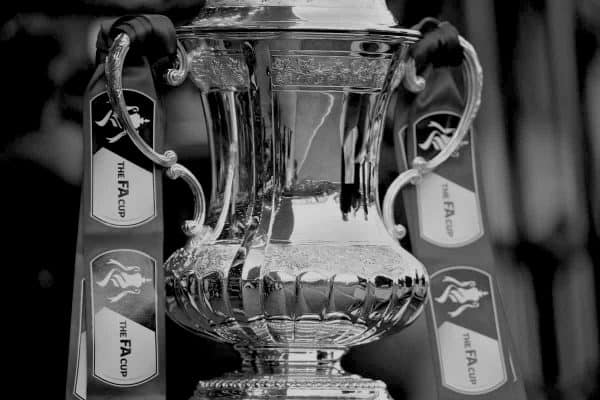
In contemporary footballing parlance, the domestic cups had become disposable trinkets, a set of old keys at the back of a drawer for which nobody now knew what they opened, or maybe even the fast-food of football, compared to the fine dining of the Premier League and Champions League.
It might not have been an entirely new concept in broader terms, but it was finally the line in the sand for the new Liverpool, from where they focused on following the footballing money as well as the greatest of glories.
It was now all about breaking into the most profitable zones of football and staying there, brushing aside the trivialities of the domestic cups as being nothing more than an unwanted distraction. To be fair, it is hard to suggest that it wasn’t an approach that helped Jurgen Klopp’s team scale the mountains of winning the Champions League and the Premier League.
Without the open cheque books of Chelsea and Manchester City, Liverpool’s most recent decade has been one of putting together an intricate project of gradual improvement, of intelligent upcycling, of placing building blocks in carefully chosen positions, of Moneyball, as opposed to the approaches at Stamford Bridge and Eastlands where the answer to all fleeting problems is to throw more money around.
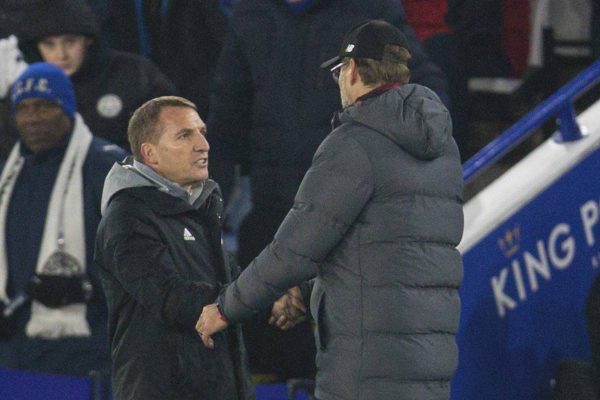
For a long time throughout the Brendan Rodgers era and even during Klopp’s formative reinvention of Liverpool, they had never really been blessed with a ballast of surplus talent. Players that were eager to embrace the domestic cup competitions as their chance to shine, given that they were generally sat on the sidelines of a Premier League weekend and underused in Europe before they were sold off for peanuts to later return to English football to haunt their former clubs, in a Liverpool shirt.
Since the 2012 FA Cup final, Liverpool have contested just one domestic cup final, losing a smattering of semi-finals on either side of the 2016 League Cup final, a time when dreams of Premier League and Champions League success were quite possibly as outlandish as they had ever been, at least since the last time they had been as outlandish as they had ever been (circa 2010/11).
Yet, within those last acts of Rodgers and the early years of Klopp’s unique brand of footballing therapy, they were able to make a speculative attempt on cup glory.
Under Rodgers, we lost both domestic cup semi-finals in 2014/15, and under Klopp, we lost that 2016 League Cup final on penalties to Man City in the same season as we were beaten in the Europa League final. Another League Cup semi-final was lost 12 months later.
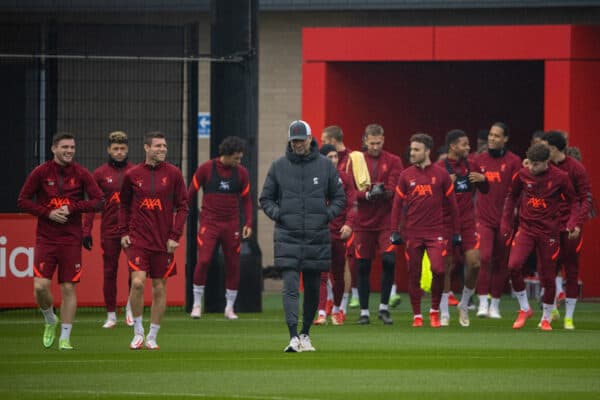
Even going back a decade and a half to the last time we won the FA Cup, it has been very much a case of there being a time and a place for Liverpool to throw a significant amount of weight into the domestic cups.
Therefore, this season feels a little bit different, and it isn’t necessarily down to us seeing our Premier League hopes falter, at least compared to where they were a month ago.
This is more the result of an environment at Liverpool that is bubbling along as a true collective with no obvious schisms and divisions between the various player demographics, partly accentuated by the inclusive nature of the manager, and partly due to a global pandemic necessitating every single fit and able player having a reasonable chance of getting a game. Some of us even expected Loris Karius to play on Sunday.
This team is different
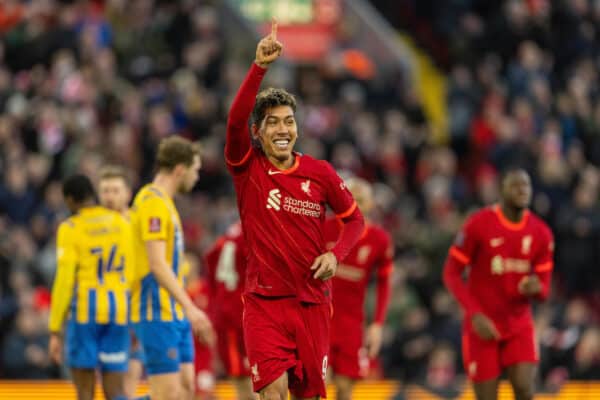
The line-up that took to the pitch against Shrewsbury Town on Sunday was one that swung from one extreme to the other in terms of experience.
At one end of the spectrum sat the likes of Virgil van Dijk, Ibrahima Konate, Andy Robertson, and Fabinho, while at the other there was a cluster that included Conor Bradley, Tyler Morton, Kaide Gordon, Elijah Dixon-Bonner and Max Woltman.
When Curtis Jones and Caoimhin Kelleher are the middle ground elements of the sliding scale, then you must accept that you are hoping that some very different generations and mindsets can weld together in the pursuit of a positive result.
It isn’t meant to work that way, though.
In a more insipid, relatively recent era, when Liverpool managers cobbled together teams for domestic cup ties, the cast of players were littered with a heady concoction of players we should never have bought offset by youth products that were never really going to make it.
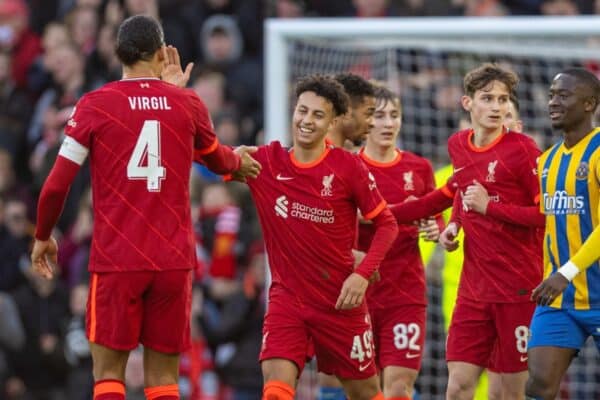
We walk in different times now, though, and this is a squad in which Klopp has propagated a system where each individual component is as valued as the other.
When a Van Dijk takes to a pitch next to a Woltman, a Fabinho alongside a Dixon-Bonner, there isn’t a shred of career snobbery on show and it isn’t a game that is considered a chore and this is why this version of Liverpool are looking a different proposition in the domestic cups, so far this season.
More fast food is on the Thursday night menu when Arsenal drift into town for the belated League Cup semi-final first leg. Wembley looms.
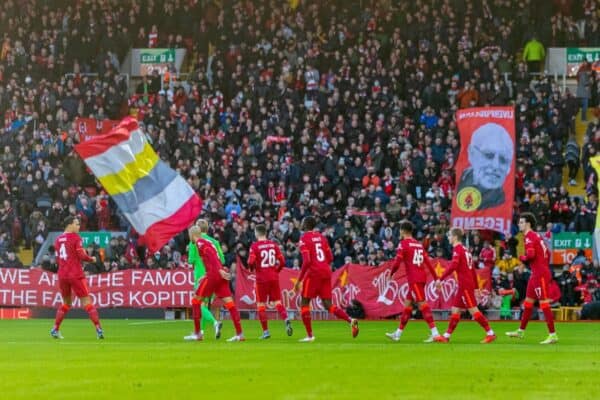



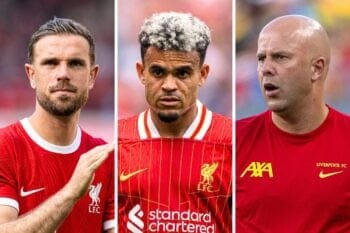
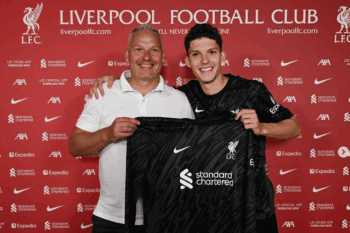






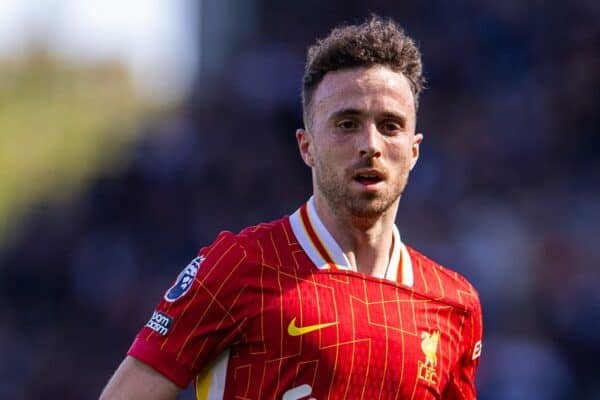
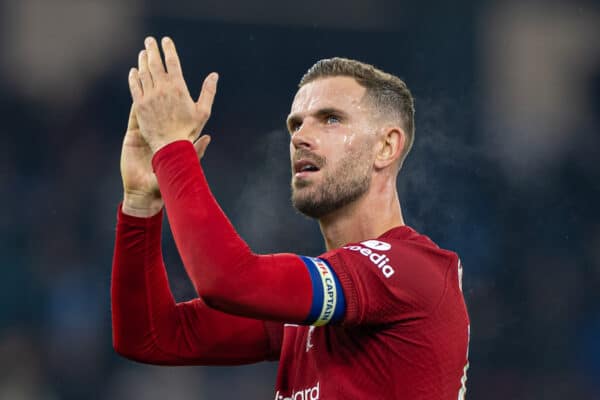



Fan Comments